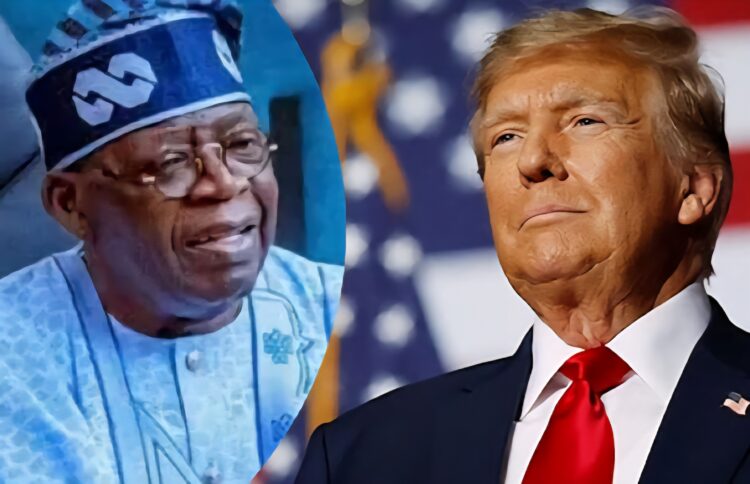The Americans are coming and Nigerians are running helter-skelter, clawing at each other. In the space of a week, every Nigerian—Muslim, Christian, non-affiliate—has become a religious Voltron and a foreign policy expert. In the storm of public commentaries, “expert” analysis and social media expressions, it became clear that we are not listening to each other. We are, both Muslims and Christians alike, more spurred by emotions than reason. This emotive state of the nation made me quite reluctant to even address this issue because I doubt there will be any sort of objective reading of any kind of opinion. But in the end, these are issues that must be addressed.
I will try to avoid issues that have been over-analysed across several fora in the last few days. At this point, it doesn’t seem like any Nigerian can be convinced one way or the other whether there is a “Christian genocide” or not, as not many people are willing to change their opinion on this.
So, I will start by acknowledging that even a broken clock is right at least twice a day, and in all his rants, US President Donald Trump may be wrong about many things, but he is right on one issue—labelling Nigeria a “disgraced country.”
What country with any self-worth allows itself to be disgraced by a bunch of rag-tag groups of terrorists, criminals, militias, militants, gunmen, looters and every scallywag with balls? What sort of resource-and-population-rich country allows itself to be in a position to be threatened with the withholding of foreign aid or “military action” by a foreign power over a rascally lot we should have efficiently dealt with years ago?
Our ancestors said one should not look to where one fell but at where one tripped. There have been a series of mistakes and oversights that have got us to this point where our sovereignty is being dragged through the mud of the international village square. We caused it. Our governments did.
The first mistake we made was tolerating the existence of terrorist and criminal gangs across the country. Nigeria has successfully, through gross negligence, incompetence, complicity and corruption, democratised violence. The rise of ethnic militias that were unleashed at our return to democracy in 1999 and the communal violence that we witnessed in places like Kano, Kaduna, Jos, Sagamu, Lagos, etc., and the vigilantisation of the South East region, along with the government’s woeful handling of these situations, set us on this track.
Successive governments’ failure to secure Nigerians at that time was only compounded by the failure to dispense justice after those irrational bursts of violence. Mass murderers were shielded by this lack of justice; their crimes were waved away and they were allowed to continue walking among the people whose loved ones they killed.
This directly gave birth to militias and terrorists hiding under the guise of addressing these injustices the state overlooked. Fulani militias will claim they are avenging the murders of their loved ones and the rustling of their cattle by “Christian youths,” who in turn will claim they are avenging the injustices done to them when the herdsmen raided their farmlands. Even the worst scourge we have had in this country, Boko Haram and ISWAP, claimed they were fighting social injustice and carving out an “Islamic state” from Nigeria for themselves, to be governed by their twisted notion of justice, as their only option. The same arguments are being made by IPOB, who seek to carve out a separate state that they believe will be just to their people, as the Nigerian state has been unjust to them. The Niger Delta militancy, though not aspiring to secession, was fuelled by the decades of social and environmental injustices the region had suffered. This same rationale fuelled the OPC agitations.
Instead of dispensing justice, Nigeria has cavorted with terrorists and criminal gangs, cultivated them for political positioning and nurtured them for corrupt gains. “Repentant” Boko Haram members are pardoned and reintegrated into society without ever facing justice and with no regard for their victims; pro-tempore “repentant” bandits who have abducted hundreds and murdered dozens are presented before the press and treated as celebrities at “peace” events, where they come wearing their weapons like war medals, and leave with them only to resume their killings after a short while.
Our failure to handle this insecurity better—from Jonathan, to Buhari and now Tinubu, who all made campaign promises centring on this issue, and failed to follow up on them—led us here. I have written columns on massacres in Zamfara, Katsina, Plateau and Benue, where the government promises to find the horde of perpetrators and promptly sweeps aside the issue. We have been disgraced by these terrorists and the steady stream of headlines reporting mind-boggling massacres long before Trump decided to strip us naked in the village square.
This culture of neglect directly led to the second mistake—our failure to appoint ambassadors for two years. How any country, especially one that aspires to play a major role in the comity of nations, cannot have ambassadors to secure and advance its national interest is something that confounds. It is possible that the presence of an ambassador in the US, for example, might have mitigated the strength of misinformation deployed to push this narrative. Of course, there is no guarantee that would have prevented the stupendous misreading and oversimplification of the situation by the US government, but there is no way of knowing that, is there?
Other mistakes we have made have included not being deliberate about fostering national unity—which admittedly is a hard task when our concept of social justice is dangerously kwashiokored. Neither have we bothered to properly document the killings in the country to acknowledge the sheer scale of it, to honour and remember the victims, and remind ourselves never to let it happen again. Instead, we content ourselves with ineffectual presidential condemnations.
On the other hand, it would be really easy to dismiss Trump’s posturing and declaration as the actions of an impulsive man, but upon closer scrutiny, it may be far from it. For over a century, the US has lifted from a tested playbook. Most recently, we saw the deployment of the “Weapons of Mass Destruction” and other disinformation campaigns to put US boots on the ground in Iraq, to firebomb Gaddafi’s convoy in Libya and intervene in several countries where the populace anticipated the intervention would improve their lot. Most of these countries and their people have discovered that that hasn’t been the case.
Nigeria must be careful how it responds to this play by the US and not rush into the mistake that Colombia made. In 1928, striking Colombian banana plantation workers demanding better pay and working conditions threatened the interests of powerful US businesses—the United Fruit Company (UFC), which at the time had enormous influence and control over the banana trade in South and North America, generating billions in revenue.
To protect its interests, UFC worked closely with the US Ambassador to Colombia, Jefferson Caffery, who dispatched telegrams to the US Secretary of State portraying the strike as a communist uprising that must be quelled immediately.
Much as it is doing today, the US government of Calvin Coolidge, deliberately misinformed and misled, pressured the Colombian government to deal with the striking workers or risk being invaded by the US marines stationed just off the coast. In its panic to avoid invasion and end the strike, the Colombian government opened fire on its own citizens, killing about 2000 people who just wanted to be paid for their labour in what has become known as the Banana Massacre.
As in that case, a lot of disinformation and manipulation was employed, as was the case in Iraq and Libya, and other places the US had set eyes upon, and as is the case in Nigeria today. Whatever interest is being pursued by this narrative must not come at the expense of more Nigerian lives than are being lost already, but make no mistake, the terrorists killing Nigerian Muslims and Christians must be dealt with decisively and efficiently.
If there is anything worthwhile in this shameful episode, it is that Trump’s words and posturing might have lighted the fire that will force the Nigerian government to act decisively. Our government needs the kick in the backside. If the wails and whimpers of thousands of dying Nigerians and the streams of our blood have failed to convey the urgency of the situation, then perhaps these scathing words might serve the purpose.
It would be a terrible shame for the Americans to come; their words should suffice. Nigeria cannot afford to mismanage this crisis as we have mismanaged our security situation in the last two decades. But it is high time we put this house in order. After all, we can blame Trump’s unilateralism, but there has to be a crack in the wall for a lizard to crawl into.




